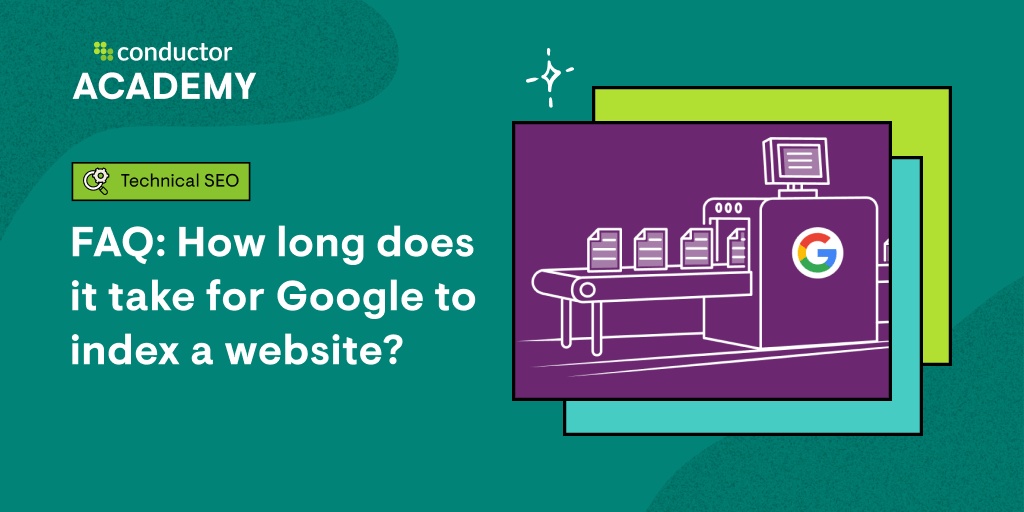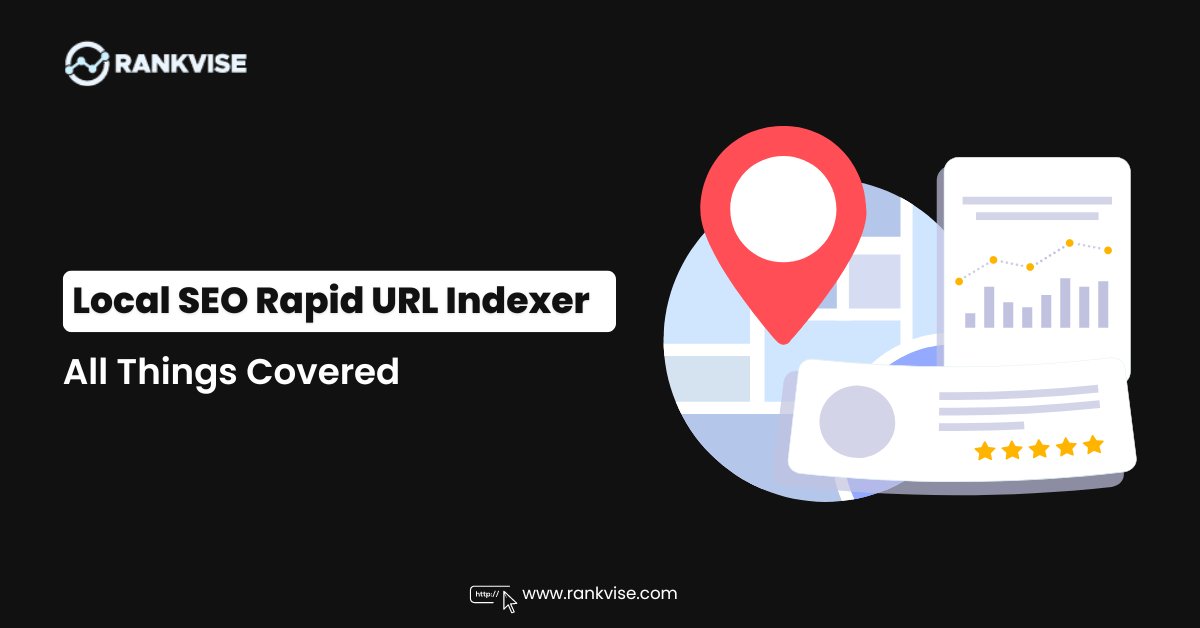In today’s rapidly evolving digital landscape, the success of a new website heavily depends on its visibility to potential users and clients. Fast indexing by search engines such as Google is crucial for ensuring that a site is swiftly and accurately cataloged, thereby increasing its accessibility and prominence online. With the vast majority of online experiences beginning with a search engine query, ensuring that a new website is efficiently indexed is paramount to capturing organic traffic. This early exposure can significantly influence a website’s initial footing and long-term growth, making fast indexing a critical component of successful digital strategy.
The Importance of Fast Indexing for New Websites
When launching a new website, speeding up the process by which it is indexed by search engines is crucial. Indexing is the method by which search engines gather and store data from websites, allowing them to appear in search results. Here’s why fast indexing is critical:
Enhancing Early Search Visibility
New websites typically start with zero or minimal online recognition. Indexing quickly helps your website gain early search visibility, which is essential for driving initial traffic. When indexed faster, your content becomes available to users searching for relevant topics, creating opportunities for engagement and customer acquisition.
Outpacing the Competition
In competitive industries, being indexed faster than your competitors means that your content has the potential to be seen first. This early exposure can translate into capturing market share and establishing your site as a relevant source of information or products before competitors can respond.
Improving User Experience
Fast indexing isn’t just about search engine visibility; it also impacts user experience. When users can find your site information quickly on search engines due to efficient indexing, they can access the resources they need without delay. This process helps in building a positive reputation and increases the likelihood of repeat visits.
Leveraging Marketing Movements
If your business relies on timely marketing campaigns, such as seasonal sales or new product launches, fast indexing is vital. Rapid indexing ensures your target audience learns about these promotions in a timely manner, maximizing their effectiveness and return on investment.
Monitoring and Adjusting SEO Strategies
Having your pages indexed promptly allows you to monitor traffic and user metrics more reliably. With data collected sooner, you can swiftly adjust your SEO tactics according to what’s working or what needs improvement, refining your strategy to better suit audience needs and preferences.
| Factor | Description | Impact |
|---|---|---|
| Crawl Rate | How frequently search engine bots visit your site | Improves indexing speed when increased |
| Content Updates | Frequency and relevance of new content | Encourages bots to crawl the site more often |
| Site Structure | Easy-to-navigate site architecture | Facilitates faster indexing of all pages |
| Backlinks | Links from reputable sites | Increases site’s authority, prompting faster indexing |
| XML Sitemap | Structured file listing all site pages | Guides search bots to all content effectively |
Why is website indexing important?

Website indexing is the process by which search engines like Google, Bing, and Yahoo crawl your website, store its data, and organize it in a way that makes it easily retrievable during a search query. When a site is indexed, its pages are stored and analyzed by search engines, making them available to show up in search results. The importance of website indexing lies in several crucial factors essential for online visibility and success.
Increased Visibility
Indexing ensures that your website’s pages are available for users to find in search results. Without indexing, your site may as well not exist in the eyes of search engine users.
- Search Engine Inclusion: Indexed pages are included in search engines’ databases, making them eligible to appear in search results.
- Reach Potential Audience: Being indexed allows your content to reach a broad audience who might be searching for keywords related to your niche.
- Enhanced Discoverability: Websites that are well-indexed are more likely to be discovered by users and other websites, facilitating organic growth.
Improves Search Ranking
Proper indexing practices can significantly improve a web page’s ranking on search engine results pages (SERPs), enhancing the likelihood of user engagement.
- Algorithm Understanding: Search engines analyze indexed content to understand what each page is about, helping improve keyword relevance.
- Ranking Signals: Indexed websites take advantage of ranking algorithms designed to highlight relevant and engaging content.
- SEO Optimization: Optimization allowance for indexed content improves ranking opportunities through SEO strategies like keyword targeting and meta descriptions.
Keeps Content Updated
An adequately indexed website ensures that search engines reflect the most current version of its content, maintaining relevance in rapidly changing digital spaces.
- Frequent Crawling: Search engines crawl indexed sites regularly, keeping the indexed content current and up-to-date with any changes made.
- Content Freshness: Updated indexes ensure users see the most recent version of pages, which is essential for new products, news, or blog posts.
- User Trust: Providing current information builds user trust and credibility, maintaining a site’s reputation and authority.
How much time does Google take to index a new website?

The time it takes for Google to index a new website can vary significantly. In some cases, it can take just a few days, while in others, it might take weeks. Several factors influence this process, including website structure, content quality, and backlink strength. If a website follows Google’s best practices, it may be indexed more quickly as Google’s crawlers will find it easier to navigate and understand the site’s content.
Factors Affecting the Indexing Speed
The speed at which Google indexes a website isn’t uniform and depends on several factors:
- Website Structure: If a site has a clear, logical structure with simple, easy-to-follow navigation, Google can crawl it more efficiently, which speeds up indexing.
- Quality Content: Sites with unique, high-quality content are often indexed faster. Google prioritizes sites that provide value, aiming to offer the most relevant search results to users.
- Backlink Profile: Having a robust backlink profile can significantly enhance indexing speed. When authoritative sites link to your website, it’s more likely to capture Google’s attention quickly.
Steps to Speed Up Indexing
If you’re looking to have your site indexed faster, consider these steps:
- Submit a Sitemap</strong>: Use Google Search Console to submit your website’s sitemap. This direct information helps Google understand your site’s structure and content.
- Optimize SEO Elements: Ensure all SEO elements like meta tags, titles, and headers are optimized to make your website more attractive to search engines.
- Use Internal Links: Incorporate internal links smartly to help Google bots navigate and understand your site better, enhancing the probability of faster indexing.
Common Challenges and Solutions
Several challenges can impede speedy indexing, but they can be addressed:
- Poor Loading Speed: If your site loads slowly, it can deter Google’s crawlers. Optimizing site speed with techniques like compressing images is crucial.
- Blocked Resources: Ensure no important sections of your site are blocked by robots.txt or other mechanisms unintentionally, as this can prevent crawling.
- Duplicate Content: Minimize duplicate content issues by using canonical tags, ensuring Google sees your content as unique.
Does rapid URL indexer have any impact on a website's overall SEO performance?

How Does Rapid URL Indexer Work?
Rapid URL indexers are tools utilized to accelerate the process of getting web pages crawled and indexed by search engines. They play a role in SEO by facilitating quick discovery of new content. Here’s how they function:
- Submission: A URL is submitted to the indexer tool, which typically includes a list of URL submissions for faster processing.
- Notification: The tool informs search engines of these URLs through techniques such as pinging or publicizing RSS feeds.
- Crawling: Search engines then prioritize these URLs for crawling, enabling faster indexing compared to organic discovery.
Potential Benefits of Using Rapid URL Indexers for SEO
Although rapid URL indexers are not a guaranteed mechanism to improve rankings directly, they may offer several advantages in terms of SEO performance:
- Faster Indexing: New or updated content can enter search engines’ indexes quickly, improving its potential visibility sooner.
- Increased Traffic Opportunities: Accelerated visibility can lead to more rapid increase in website visits, particularly beneficial for timely or trending content.
- Prompt Feedback: By seeing how new content is performing in searches sooner, webmasters can adjust strategies without long delays.
Limitations and Risks of Using Rapid URL Indexers
While beneficial in some cases, using rapid URL indexers can also present certain challenges and risks that webmasters should be aware of:
- Overuse Consequences: Excessive reliance on these tools might lead search engines to penalize the site due to perception of spammy practices.
- Temporary Solutions: Indexers provide short-term indexing, but do not ensure long-term improvements in rankings or organic search performance.
- Dependence on Quality Content: They cannot substitute the importance of quality content, backlinks, and other foundational SEO strategies.
Frequently Asked Questions
What is fast indexing, and why is it important for new websites?
Fast indexing refers to the quick inclusion of a website’s pages in search engine databases. When a website is rapidly indexed, it means search engines like Google can quickly recognize and list the content, making it discoverable by users. For new websites, fast indexing is critical because it allows them to start appearing in search results sooner, thereby gaining early visibility in a crowded digital space. This is particularly important for establishing an online presence and starting to build traffic. New sites often struggle with being overshadowed by established competitors, so having their content indexed swiftly gives them an edge in gaining traction. Without fast indexing, a website might remain invisible to search engines, and by extension, to potential visitors and customers.
How does fast indexing affect a website’s search engine ranking?
Fast indexing can positively influence a website’s search engine ranking by ensuring that the content is considered for ranking opportunities sooner. When a new website’s content is indexed quickly, it starts to compete with other sites for keywords and search positions. Even though fast indexing itself is not a direct ranking factor, it sets the stage for a website to improve its visibility and attract organic traffic. Moreover, fast indexing allows a site to respond more swiftly to changes in search trends and user behavior, optimizing content to maintain or improve its position. Fast indexing is the first step in a sequence that includes crawling, indexing, and ranking, all of which determine how visible a website is in search engine results. Thus, ensuring speedy indexing can have a long-term influence on a website’s SEO strategy and online success.
What strategies can be employed to ensure fast indexing for new websites?
To achieve fast indexing for new websites, several strategies can be implemented. Firstly, submitting a sitemap to search engines like Google through Webmaster Tools is an effective method to notify them of the site’s structure and new content. This guides search engines in understanding what they should index. Secondly, creating high-quality, relevant backlinks from reputable sites can alert search engines to deem the new site as valuable, encouraging them to index it quicker. Additionally, ensuring the website is mobile-friendly and loads quickly can aid in fast indexing, as search engines prioritize sites that provide good user experiences. Regularly updating and publishing fresh content signals to search engines that the site is actively maintained and warrants more frequent crawling. Finally, using social media and online communities to promote the website can drive initial traffic and attention, prompting search engines to accelerate the indexing process due to increased activity and signals.
What role does content freshness play in fast indexing for new websites?
Content freshness plays a significant role in facilitating fast indexing for new websites. Search engines prioritize new and updated content, as it tends to be more relevant and useful to users. By regularly adding new pages or refreshing existing content, webmasters signal to search engines that the site is active and needs to be revisited for updates. This increases the frequency of search engine crawlers visiting the site, thus enhancing the chances of fast indexing. Fresh content can also attract more users, leading to higher engagement rates, which search engines may interpret as a signal to quicken the indexing process. In essence, maintaining content freshness helps establish the website as an authoritative and dynamic source, encouraging search engines to acknowledge and index it more swiftly, contributing to the site’s overall visibility and accessibility.

